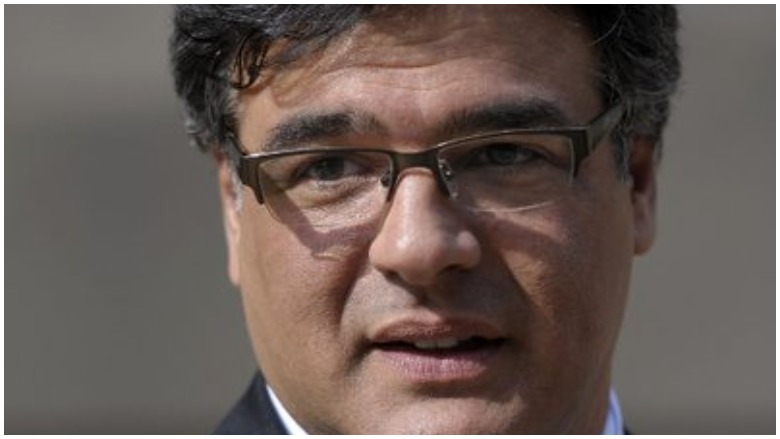
Twitter/John Kiriakou John Kiriakou
John Kiriakou, former CIA counterterrorism agent and torture whistleblower imprisoned for 30 months from 2013 to 2105, said “putting (Gina) Haspel in charge of the CIA would undo attempts by the agency and the nation to repudiate torture.”
Kiriakou may have been among the first to reveal that Haspel’s nickname at CIA was ‘bloody Gina.’
In a ‘perspective’ piece published in The Washington Post he argued that Haspel in charge sends a very clear message: “Engage in war crimes, in crimes against humanity, and you’ll get promoted. Don’t worry about the law. Don’t worry about ethics. Don’t worry about morality or the fact that torture doesn’t even work. Go ahead and do it anyway. We’ll cover for you. And you can destroy the evidence, too.”
As Haspel is being grilled in Senate confirmation hearings after being nominated by Pres. Donald Trump to run the CIA, Kiriakou says confirming her would be anti-Christian and argues that even conservatives should be able to agree on that point; torture is wrong, Jesus preached.
Here’s what you need to know about John Kiriakou:
1. Kiriakou Spent 14 Years With the CIA as a Counterterrorism Operations Officer. He Refused to be Trained in ‘Enhanced Interrogation Techniques’ Following 9-11
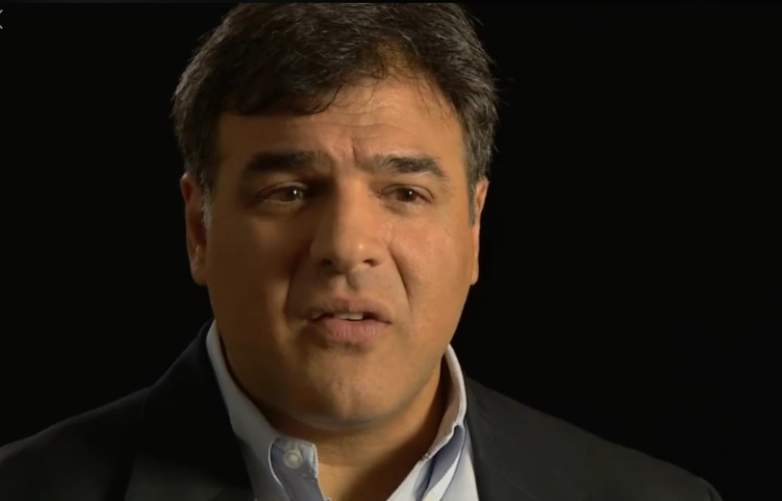
John Kiriakou
Kiriakou began his career with the CIA a couple of years after graduate school as an analyst in 1990 and wound up as a counterterrorism operations officer focused on Iraq and the Persian Gulf. He was part of the CIA spy service the Directorate of Operations, where he worked “running foreign agents, tracking down bad guys, (and) risking his life in the service of CIA,” his bio reads.
In 1997 Kiriakou moved to Greece where he “worked against the notorious terrorist group ‘Revolutionary Organization 17 November.’”
Kiriakou was in Saudi Arabia in June 1996 right after Hezbollah “terrorists blew up a U.S. Air Force barracks and killed and wounded dozens of people. This event was harbinger of things to come,” according to his website.
By 2000, while fighting al-Qaeda, “a dangerous and difficult adversary to find and stop,” he led a “dramatic takedown that offered the promise of reaching the top of al-Qaeda’s leadership.”
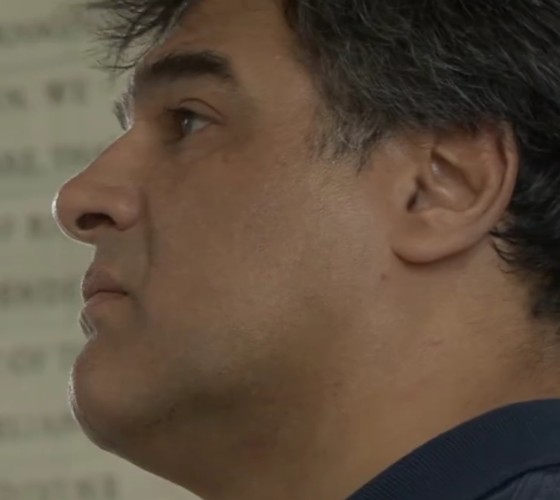
John Kiriakou
But 9-11 happened and he says the agency’s focus was “diverted to an unnecessary war in Iraq.” Kiriakou is not shy about calling the war in Iraq a mistake. “Instead of going after al-Qaeda, Saddam Hussein became the target and the intelligence resources was misused by the powers in charge at the time,” he said.
After 9-11, he was chief of counterterrorist operations in Pakistan. His tour of duty “culminated in the March 2002 capture of Abu Zubaydah, then believed to be al-Qa’ida’s third-ranking official.”
From his bio, Kiriakou says he feels “proud of his service to the country” and chose not to to be a part of so-called ‘enhanced interrogation techniques’ on top al-Qaeda detainees, “including the man captured by the counterterrorism team he headed in Pakistan.” He called the techniques torture and refused to participate, he says.
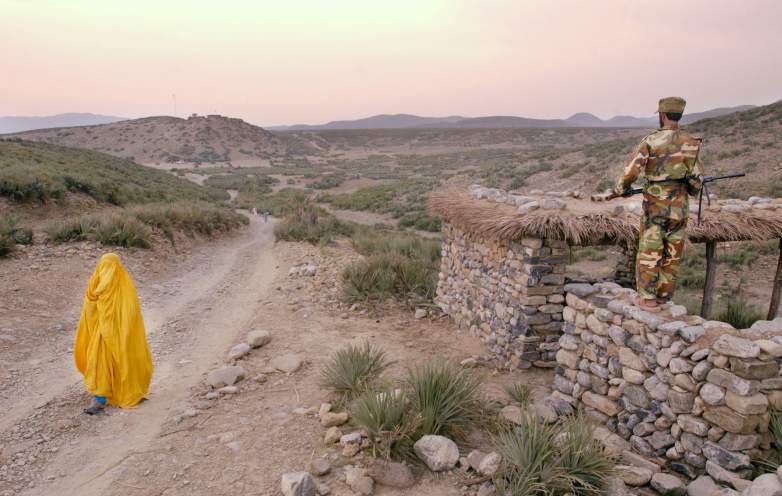
A woman crosses the border between Pakistan and Afghanistan unchecked by an Afghan border guard September 24, 2002 at the Kadam Safar border crossing in Afghanistan.
Kiriakou left the CIA in 2004.
2. Kiriakou Spoke Openly About the Torture of Terror Suspects & Was Later Charged Under the Espionage Act. Pleading Guilty to a Lesser Charge, the Whistleblower Went to Prison
In 2007, Kiriakou told ABC News’ Brian Ross about the CIA’s ‘enhanced interrogation techniques,’ which he said were torture and that the program was official US government policy. He told Ross about the waterboarding of Abu Zubaydah which he said only lasted 30 seconds or so. He said the CIA said at the time that only “two people were waterboarded, Abu Zubaydah being one.”
He would later find out that that was a low ball count. Very low. In fact, the Senate Intelligence Committee’s 525-page summary of the full report said the CIA employed brutal torture from “waterboarding to rectal hydration on terrorism suspects” and had done so on hundreds of occasions which contradicted the CIA claim it had only waterboarded three prisoners a few times, Zabaydah, Khalid Sheikh Mohammed, and Abd Al Rahim al-Nashiri.
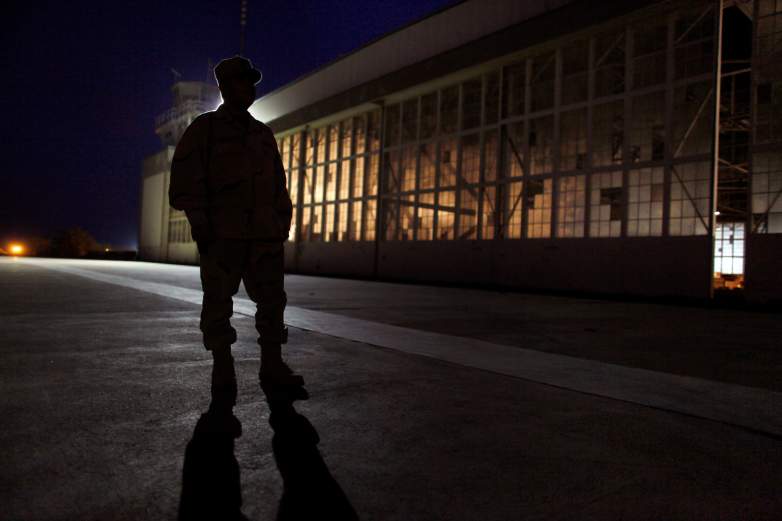
GettyCamp Justice, the site of the U.S. war crimes tribunal compound, July 15, 2009 at Guantanamo Bay U.S. Naval Base, Cuba.
Kiriakou at the time of the interview was unaware and told Ross that he did not want to be part of the ‘enhanced interrogation techniques’ training, according to the 49-page transcript of the interview.
“…I elected to– to forego the training. I was asked if I wanted to be trained in the enhanced techniques. And I sought the counsel of a senior agency officer who’s still an agency officer. And I said, ‘What would you do in my situation?’ And he said, ‘Frankly, I think it’s a slippery slope. An accident (is going to) happen. And– I wouldn’t do it.’ And so I declined.”
The CIA would later destroy all tapes of interrogations.
The whistleblower cum anti-torture activist says he was “driven to ruin by the Justice Department because of these revelations,” he says. A years-long investigation at first sans results or charges, was by 2012, under the Obama Administration, pursued and Kiriakou was charged with three counts of espionage, one count of violating the Intelligence Identities Protection Act and one count of making a false statement as a result of that TV news interview. Rather than risk perhaps dying in prison since he was facing 45 years, in 2013, Kiriakou agreed to a plea to violating the Intelligence Identities Protection Act; the other charges were dropped and he was sentenced to serve 30 months in a federal prison, albeit a very low-level security federal lock-up in Pennsylvania.
On a Kiriakou website, in his ‘about’ section, Kiriakou says the charge was related to him in supplying a last name to a first name of a former CIA agent in a conversation with a reporter. He claims what his punishment was really about was that he blew the whistle on Bush-era torture program following the 9-11 terror attack.
“The CIA officers who actually tortured detainees in custody have never been charged. A CIA executive who destroyed more than 90 videotapes of the torture–tapes that could have been used as trial evidence–was not charged. Why has he been given a free pass by the Justice Department,” a post on his website asks rhetorically. “Those answers are difficult to find …the government made a decision to target (Kiriakou) and intended to destroy his career, his reputation and his ability to provide for his family, all in the attempt to prevent future disclosures about CIA interrogation programs by anyone.”
Kiriakou was released from prison in February 2015 and was placed on house arrest until May of that year.
Kiriakou says he spent his career “protecting American security and served honorably in the CIA, while helping to achieve major counterterrorism successes that made the world safer.”
3.From Prison, Kirikou Wrote an Op-Ed Blasting the Obama Administration’s Use of the Century-Old Espionage Act
In mid-2013, then editor at The Guardian, Matt Seaton received an envelope postmarked from Loretto, Pennsylvania. In it was an opinion piece, written by hand on sheets of yellow lined paper, from an imprisoned Kiriakou.
Years later, when Kiriakou tweeted, “I went to prison for disclosing the CIA’s torture. Gina Haspel helped cover it up,” he had backup.
“As an editor who received an op-ed from @JohnKiriakou handwritten on yellow lined paper from his prison cell, I endorse this brave whistleblower’s comment.”
“It was my punishment for blowing the whistle on the CIA’s torture program and for confirming to the press, despite government protestations to the contrary, that the US government was, indeed, in the business of torture,” Kirikou wrote.
In the published op-ed, Kiriakou wrote ad nauseam about what started in the George W. Bush administration and continued into the Obama administration. He called the use of the Espionage Act akin to “McCarthyism.” The missive was less about the torture program and more about how he felt he, and others including Chelsea Manning were charged under the 1917 Act “so antiquated that it doesn’t even mention classified information; the classification system hadn’t yet been invented. The law was written a century ago to prosecute German saboteurs.”
Kiriakou said the Espionage Act needs to be ditched and new legislation to protect whistleblowers, “while allowing the government to prosecute traitors and spies,” be enacted.
4. Kiriakou Says ‘Bloody Gina’ is the Wrong Person to Head the CIA & That She ‘Tortured Just For The Sake of Toture.’
In a piece just published by The American Conservative, Kirikou says that the likely opponents to the confirmation of Gina Haspel to be CIA director are not surprising and include Democrats, progressives, and libertarians but he argues conservatives and Christians should as well.
As a former instructor at the very conservative Liberty University, Kiriakou said he spoke to a mentor, a former CIA officer and fellow instructor at the college Dr. Charles Murphy who shared a final exam on a class he taught in an intelligence analysis class that posed questions about the ethics of torturing a terror suspect and his family and how the students would act. Kiriakou said the four-question essay exam has stayed with him and “forms the basis of what I believe is the conservative, evangelical Christian case against Gina Haspel.”
The test went like this: There’s a terrorist suspect and a possible bomb ready to go off. Do you torture him? Explain. Next, you’ve tortured him and learned nothing. So go on to his wife and repeat; you have tortured and learned nothing. Then, question 3, what about the terror suspect’s children, do you torture them? It was the last question, Kiriakou says, that was so simple, so direct: “…you’re standing before the judgment seat of Christ. He asks you to explain your actions. What do you tell him? Chuck was right. Torture isn’t Christian. It’s hard to even ask rhetorically ‘Who would Jesus torture?’ because the question is so absurd on its face.”
Kiriakou says Haspel, who was called ‘Bloody Gina’ by he and others at CIA, is the wrong person for the job as head of the CIA given her role as torture overseer. In fact, in her first day of Senate confirmation hearings, Haspel refused to answer whether or not she believes the torture committed by the CIA was immoral.
“I have no doubt that she considers herself to be a patriot, as her supporters do. But that’s not the issue here. The issue is respect for the rule of law,”he wrote. Torture Is illegal. “Since the end of World War II, we have had laws in this country that specifically ban exactly those torture techniques implemented and overseen by Gina Haspel at a secret prison overseas.”
Kiriakou says that Christians in the Senate on the fence about Haspel “need look no further than their Bibles. Gina Haspel has no business heading the CIA.”
5. Kirikou is Now Focused on Anti-Torture Efforts, Writes, Lectures & Does Humanitarian Work
Kiriakou was one of the whistleblowers featured in the acclaimed and award-winning documentary ‘Silenced’ about “telling the truth becomes a dangerous act when three federal whistleblowers reveal the darkest corners of America’s war on terror,” director James Spione said.
After the CIA, Kiriakou was a terrorism consultant, was senior investigator in 2009 for the Senate Foreign Relations Committee, and has lectured on the CIA, terrorism, torture, and ethics in intelligence operations.
Kiriakou works with the DC-based think tank Institute for Policy Studies and he’s described as a humanitarian “with values so deeply entrenched in love of country and truth that nothing will stand in his way.”
He was awarded the First Amendment Award for 2015 by the PEN Center and was named to the list of the ‘100 living peace and social justice leaders and models’ by Transcend.org.
He’s co-authored three books. ‘The Convenient Terrorist: Two Whistleblowers’ Stories of Torture, Terror, Secret Wars, and CIA Lies,’ with Joseph Hickman that tells his account of the hunt for Abu Zubaydah “formerly believed to be al-Qaeda’s third-ranking leader, his capture, torture, incarceration, and transfer to Guantanamo by the two people who knew him best throughout the experience.”
‘The Reluctant Spy: My Secret Life in the CIA’s War on Terror,’ which chronicles his years with CIA and the beginning of his troubles following the ABC News interview where he said the CIA was torturing prisoners, that that torture was official U.S. government policy, and that the policy was approved by the President.
‘Doing Time Like a Spy,’ is his account of how he employed lessons learned while in the CIA to survive prison.


